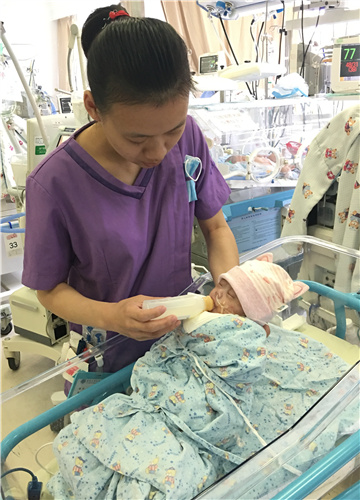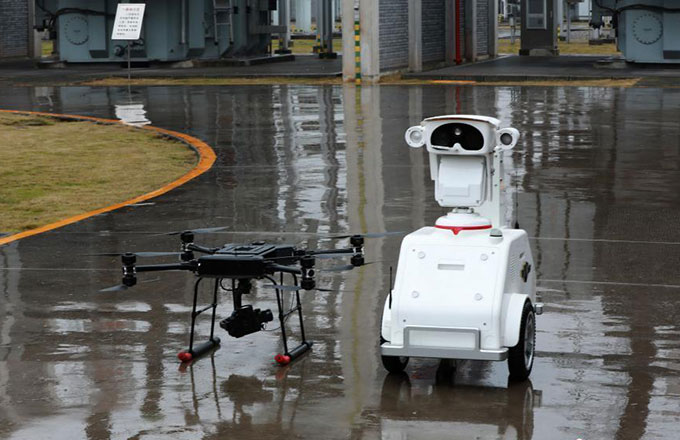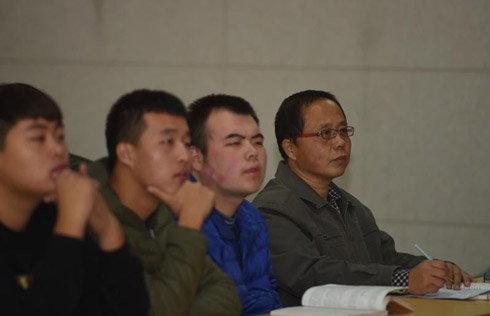Shanghai hospital banks breast milk
 |
|
A nurse feeds a newborn baby at Children's Hospital of Fudan University in Shanghai earlier this month. [Provided to China Daily] |
Premature babies at a Shanghai pediatric hospital's neonatal intensive care unit will no longer be fed infant formula. Instead, they'll get breast milk from their own mothers or donated by others.
The Children's Hospital of Fudan University has established, for the first time in the city, a breast milk bank especially for newborns in the ICU.
During trials in recent months, 25 mothers donated more than 200,000 milliliters of breast milk to the bank, benefiting 32 premature infants, the hospital said.
"Premature babies in intensive care are either those born with very low weight or serious conditions. They are especially vulnerable," said Cao Yun, director of the hospital's neonatal ICU.
"Currently we only call on mothers whose children are also in the ICU to donate spare milk, as the ingredients of breast milk vary and the breast milk of premature babies' mothers is different from that of full-term babies' mothers," she said.
Previously it was common practice for all premature babies to be fed with infant formula either for convenience or because their mothers were not able to secrete enough milk. But breast milk is extremely important for premature newborns, especially the most vulnerable ones, Cao said.
"Breast milk is the best food and sometimes a lifesaving medicine for such babies, who haven't developed fully in their mothers' wombs," Cao said.
"The incidence of acute necrotizing enterocolitis - an inflammation of the small intestine - is high among preterm newborns, especially those with a birth weight of less than 1.5 kilograms, and the condition is fatal in some cases. Breast milk can reduce it significantly."
The antibodies and active tissue present in breast milk elevate babies' immunity and protect them from infection and other complications, Cao said. It also helps with the development of their visual and nervous systems.
Since 2011, the hospital has been educating parents whose babies are in intensive care about the importance of breast milk and encouraging mothers of hospitalized infants to bring their own breast milk to the hospital.
"We have found that babies fed with breast milk have higher survival rates, lower infection rates and are discharged from the hospital earlier," Cao said.
Huang Guoying, president of the hospital, said the establishment of the milk bank was inspired by a visit to pediatric hospitals in Canada three years ago.
"They had mature milk banks for babies in intensive care," Huang said. "If the babies are fed with infant formula, their parents need to sign an informed consent document. But if they are fed with milk from the breast milk bank, they can drink it freely."
Yuan Li, whose premature baby stayed in the neonatal ICU for two months and was discharged earlier this month, donated more than 20 bags of breast milk to the bank.
"I have enough milk, and I am grateful that I can give some to other babies who are in need of it," she said.
Cao said the breast milk bank was first designed to satisfy the needs of newborns in intensive care - sometimes more than 200 at a time. The hospital plans to extend the service to other babies, such as those who have undergone surgery, to promote recovery.
zhouwenting@chinadaily.com.cn




























